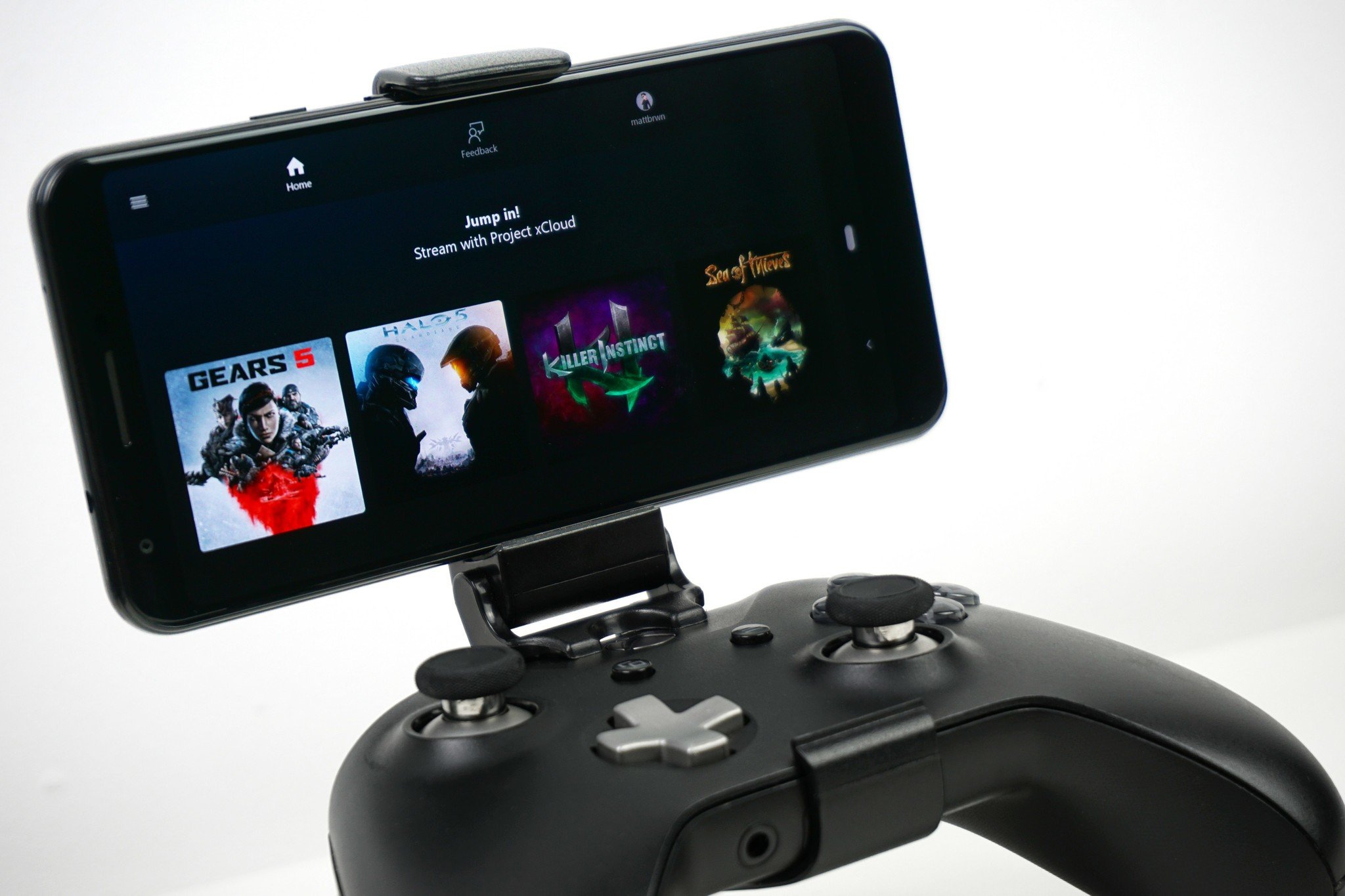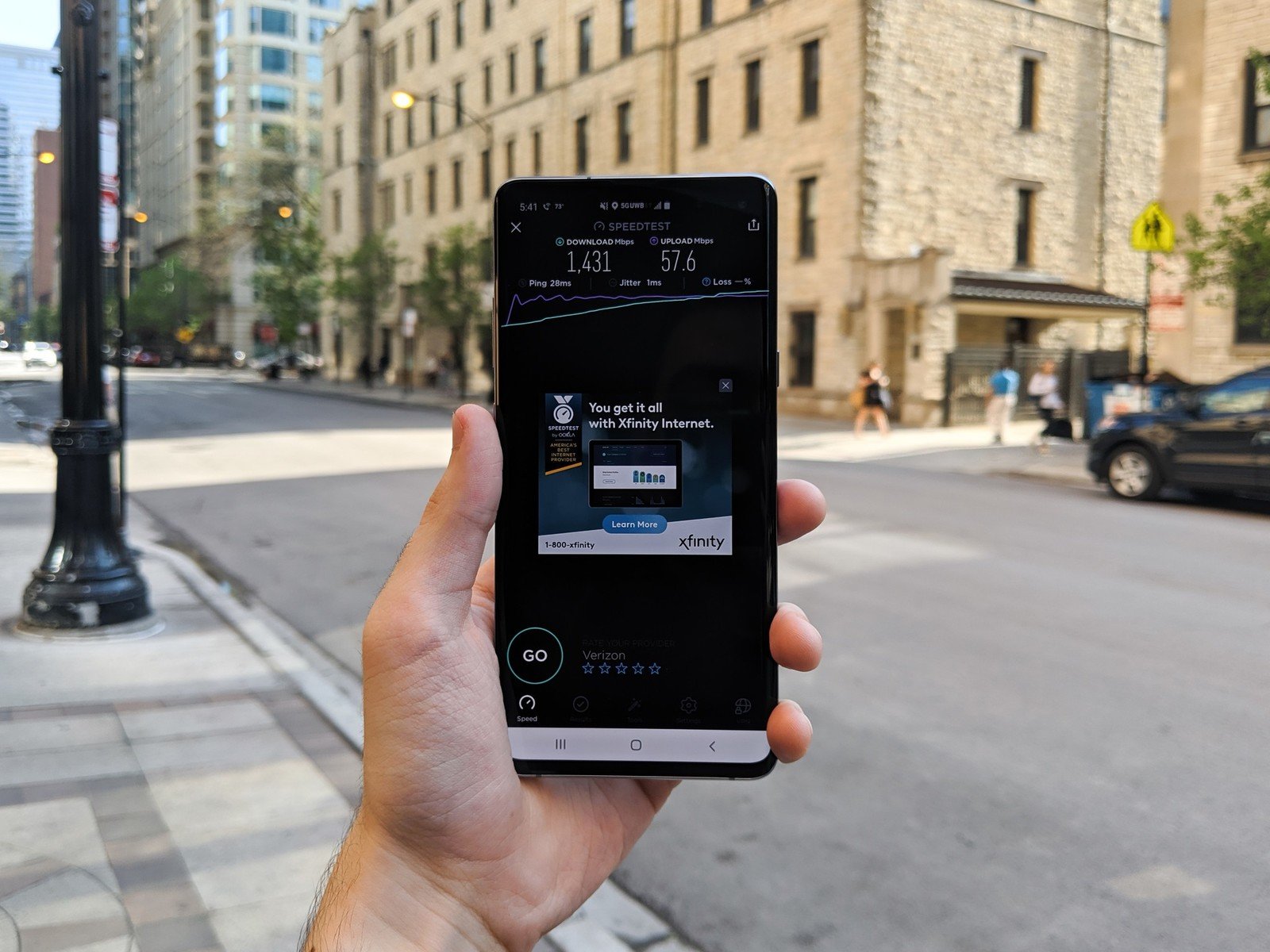Is Project xCloud the key to success for Xbox in Asia?
With early Project xCloud tests spotlighting growing interest from Korea, can Microsoft's game-streaming vision gain momentum throughout the east?

All the latest news, reviews, and guides for Windows and Xbox diehards.
You are now subscribed
Your newsletter sign-up was successful

Microsoft takes Xbox One to the skies with Project xCloud, poised to mobilize home console offerings through its cloud empire. Amid an industry-wide drive to make game streaming a viable reality, Microsoft, Google, and other titans join the initial frontrunners striking the rising market.
With Project xCloud tests underway in the US, UK, and Korea, early reports show streaming isn't going away. That also highlights surging engagement from its Korean audience, reflecting a market blessed with a thriving mobile space and high-speed internet. And as services expand across the globe, can Microsoft capitalize on untapped opportunities in Asia?
Can Project xCloud distance itself from Xbox One's struggles?
Microsoft enters 2020 with the continued expansion of its Project xCloud Preview, an ongoing invite-only trial for Xbox-backed game streaming. It approaches tests with emphasis on the underlying technologies, readying its infrastructure with a staged, per-country rollout. The focus lies on deploying custom servers powered by Xbox One hardware, purpose-built to serve low-latency gameplay, with the aid of video encoding magic. And while already serving up a taste of that vision in three markets, Microsoft is branching into new territories and forging partnerships with local telecom giants.
The collaboration with SK Telecom serves as a prime example, securing stature as the exclusive Project xCloud operating partner for Korea, in exchange for the backing of its 5G network. And early tests seemingly meet expectations, as the duo announces plans to expand Korean operations, onboarding new users and compatible titles. That also provides our first insight into streaming usage, with SK Telecom stating Korean users spend 1.75 times longer with Project xCloud over the US and UK. Testers in the region were also three times more likely to return over those in the west.
Blessed by a thriving mobile space and high-speed internet, Korea is a prime testing ground for Project xCloud
It highlights a sizeable disparity between markets, clocking double the average usage, despite being where Xbox One and rival console efforts faltered. While the US and UK likely boast higher user counts, well-rooted among the largest Xbox markets, it signals vital engagement from a mobile-weighted culture. With phones broadly adopted, and networking infrastructure primed for game streaming, Korea provides a stable foundation for Project xCloud success.
Korea is no stranger to the gaming scene, known for a high density of mobile game users, local "PC bang" gaming hubs, and fostering the growing esports scene. But the masses lean heavily toward PC and mobile gaming, with console performance falling short against western markets.
That largely hinges on former regulation of Japanese imports at the tail end of last century, an upshot of its rule over Korea. Major console platforms like Sony and Nintendo even failed to leave their mark on the region amid otherwise global growth. Xbox One and its supporting ecosystem also fell short, reflecting a similar climate favoring open platforms across Asia.
All the latest news, reviews, and guides for Windows and Xbox diehards.
From phones to 5G, Xbox streaming is primed for Korea

Overlooking the broader Asian market could be short-sighted for Xbox, increasingly lucrative as resources shift beyond its living room presence. Newzoo research from 2018 indicated that 59 percent of men and 47 percent of women played mobile games at least once per month in Korea while doubling as Asia's leader in smartphone penetration. That's millions of devices to expand overseas, provided Microsoft nails the messaging to lure established mobile users to Xbox.
The approach also benefits from Korea's leading internet infrastructure, topping average internet, and cellular speeds globally. SK Telecom leads its aggressive push for 5G, alongside rival operators KT and LG UPlus, rolling out highly performant networks at the forefront of global offerings. South Korea's Ministry of Science and ICT 2017 forecasts suggest five percent of Korean mobile users will adopt 5G in 2020, scaling to 90 percent six years later. It's an ideal testing ground for Project xCloud, almost guaranteed to deliver the best streaming performance to consumers.
Asia accounts for 47 percent of worldwide gaming revenue according to reports
But streaming potential extends far beyond Korea. Asia-Pacific accounts for 47 percent of worldwide gaming revenue, according to Newzoo's Global Games Market Report, with mobile pulling near three-quarters of gaming income for the continent. It makes Asia increasingly lucrative — especially Korea, Japan, and China.
Korea's neighboring nation, Japan, boasts one of the highest average internet speeds globally at 20.2 Mbps, according to Akamai in 2017. It's also forecasted among leading 5G strongholds this decade, despite a slow initial rollout. China is also banking on 5G, potentially opening the service to a new volume of users. But the regulatory environment and ongoing US disputes introduce hurdles for Microsoft, slowing its ability to scale across the country.
Asia could be an opportunity — but Microsoft needs to capitalize quickly

If Microsoft puts weight behind an Asia-Pacific expansion, it faces complex challenges, as a part of a multi-year journey. The diversity of markets and cultures presents countless barriers to entry, paired with the struggles of nurturing the Xbox image overseas. All that stacks against a brand infamously slow to react to anything, weighed down by the logistics of the trillion-dollar company.
Few countries match the success of Xbox One seen in the US, with notable limits in Asia. Despite the mixed success of all consoles throughout the continent, PlayStation 4 and Nintendo Switch regularly top the charts. Breaking into the market isn't impossible, adapting to consumer demands and localization, but the Xbox brand struggles to match western popularity in Japan and China.

And assuming Microsoft coverts even users to Project xCloud, it needs to address localization concerns. While the Xbox One now sees exemplary support in the US and UK, non-English speaking customers regularly skip on fundamental features.
We previously explored frustrations of weak localization, as Xbox fails to tailor languages, subtitles, or regionally relevant content to lure consumers. The South Korean Xbox community even expressed disappointment that the Xbox Store doesn't display games supporting the Korean language, taking it upon themselves to produce a massive spreadsheet to track those games.
Current Project xCloud tests serve 85 titles in Korea, with 40 featuring Korean subtitles or voiceovers, and promise of more to come. That also includes homegrown titles like Black Desert Online and Tera, with Xbox Game Studios even publishing free-to-play Korean shooter CrossfireX on Xbox One in 2020. And while that's just a fraction of compatible streaming titles, here's hoping Microsoft envisions Korea, or Asia as a whole, as a new destination for Xbox.
Xbox Game Streaming
Main

Matt Brown was formerly a Windows Central's Senior Editor, Xbox & PC, at Future. Following over seven years of professional consumer technology and gaming coverage, he’s focused on the world of Microsoft's gaming efforts. You can follow him on Twitter @mattjbrown.
